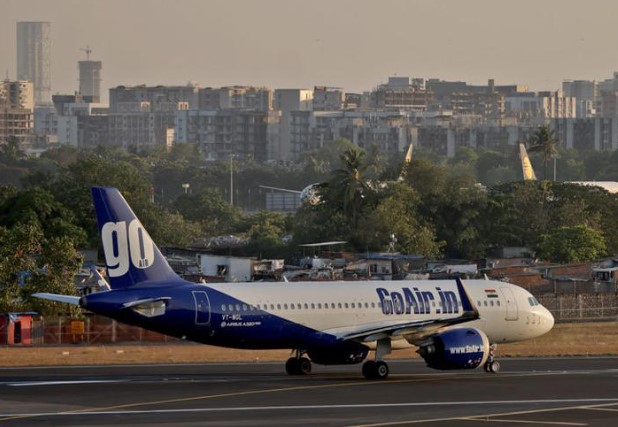India’s Go First airline files for bankruptcy, blames Pratt & Whitney engines

Cash-strapped Indian airline Go First filed for bankruptcy proceedings on Tuesday, blaming “faulty” Pratt & Whitney engines for the grounding of about half its fleet.
The move marks the first major airline collapse in India since Jet Airways filed for bankruptcy in 2019, and underscores the fierce competition in a sector dominated by IndiGo and the recent merger of Air India and Vistara under the Tata conglomerate.
The company has not defaulted on any of these dues as of April 30, but has defaulted on payments to operational creditors, including 12.02 billion rupees to vendors and 26.60 billion rupees to aircraft lessors, it said in the filing.
Go First said in a statement its filing with the National Company Law Tribunal comes after Pratt & Whitney, the exclusive engine supplier for the airline’s Airbus A320neo aircraft fleet, refused to comply with an arbitration order to release spare leased engines to the airline that would have allowed it return to full operations.
Pratt & Whitney did not immediately respond to emails and calls seeking comment. Its parent company Raytheon Technologies was not immediately available to comment.
An issue with Pratt & Whitney engines that safety authorities had warned could shut down a plane’s engine mid-flight has dogged Indian airlines for the past few years.
Pratt & Whitney has been quoted in Indian media as saying it has been affected by industry-wide supply chain pressures and that it expects those to ease later this year, which would support increased output of new and overhauled engines.
Analysts have said bigger rival IndiGo has been able to withstand the impact better, thanks to its larger fleet and a deeper pocket.
Go First, owned by the Wadia Group and formerly known as GoAir, also said on its website that it had cancelled flights scheduled for May 3 to May 5 due to “operational reasons”.
“The government of India has been assisting the airline in every possible manner,” India’s Civil Aviation Minister Jyotiraditya Scindia said in a statement. “The issue has also been taken up with the stakeholders involved.”
The collapse could benefit rival airlines as the industry tries to meet a surge in post-pandemic air travel.
“The sudden disruption in operations is likely to benefit other players and increase airfares due to supply constraint,” wrote Jinesh Joshi, a research analyst with Prabhudas Lilladher.
SURPRISE MOVE
The move took Go First’s lenders by surprise, two bankers aware of the matter told Reuters.
The lenders met Go First’s management a few weeks ago, but no intimation was given, one of the bankers said. Lenders will meet soon to assess the situation and decide on the future course of action, they said.
Go First has 56 billion rupees ($685 million) in rated Indian bank debt, according to a January report by Acuite Ratings. Central Bank of India and Bank of Baroda have the largest share.
“I am a little stunned to hear of them file for bankruptcy,” said Mark Martin, CEO at aviation consulting firm Martin Consulting LLC. “I still feel that this might not be the end of Go First. This must be a vehicle and a means for somebody new to take over.”
The number of grounded aircraft “due to Pratt & Whitney’s faulty engines” ballooned from 7% of its fleet in December 2019 to 50% in December 2022, the airline said, adding the groundings cost Go First 108 billion rupees ($1.32 billion) in lost revenues and additional expenses.
The problems, which forced Go First to delay its planned $440 million IPO in 2021, also resulted in an erosion in its market share to 6.9% in March from 8.4% in January, latest data from the Indian aviation regulator showed.
The airline was seeking to raise funds and the Wadia Group was reported to be in talks to either sell a majority stake or completely exit its shareholding. Wadia Group did not respond to an email seeking comment.
Go First said the groundings had also driven some lessors to “repossess aircraft, draw down letters of credit and notify further withdrawal of aircraft.”
Employees were caught unaware as they heard about the halt in daily operations first from local media, according to three pilots who did not want to be named. They have been receiving their salaries with a delay for the past few months, the pilots added.
“We understand that this news is likely to be distressing, and we remain committed to offer our support to all of you during this difficult time,” Go First later said in a email to employees, viewed by Reuters.
($1 = 81.7420 Indian rupees)
(Reporting by Dhanya Skariachan, Chris Thomas and Varun Vyas in Bengaluru, Tanvi Mehta and Arpan Chaturvedi in New Delhi, Siddhi Nayak in MumbaiEditing by Sonia Cheema, Saumyadeb Chakrabarty and Mark Potter)







